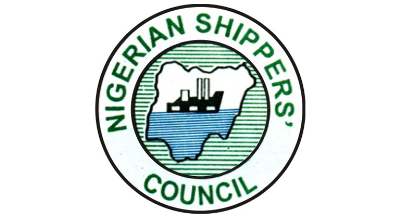The Nigerian Shippers’ Council (NSC) has blocked the repatriation of ₦52 billion in questionable foreign exchange claims at the nation’s seaports.
Speaking during the 26th Annual General Meeting and Post-AGM Talk of the International Chamber of Commerce (ICC) Nigeria, held in Lagos on Thursday, the Executive Secretary of the NSC, Dr. Pius Akutah, said the council also resolved cargo-related disputes worth over ₦2 billion in favour of importers.
Akutah, who was represented by the council’s Director of Trade Services, Ms. Adaora Nwonu, underscored the importance of shipping and maritime trade in Nigeria’s economic diversification efforts. He stressed the need to transition from oil dependence to fully harnessing the country’s maritime potential.
“In 2024 alone, the council helped prevent the repatriation of about ₦52 billion in questionable foreign exchange claims through its Economic Regulatory Portal (ERP), thus strengthening the national economy and promoting cost predictability,” he said.
Highlighting the theme of the event, “Shipping and Maritime Trade: The Backbone of International Trade,” Akutah noted its relevance in underscoring the critical role maritime transport plays in facilitating global commerce and economic development.
Citing data from the United Nations Conference on Trade and Development (UNCTAD), he stated that over 80 per cent of global trade by volume is transported by sea. “For Nigeria, with our vast coastline and maritime potential, shipping is not just a trade tool—it is a national development platform,” he said.
Akutah disclosed that more than 11.1 billion metric tonnes of goods were shipped globally in 2023, noting the sector’s impact on job creation, industrial hubs, and ease of doing business.
He commended the Federal Government for establishing the Ministry of Marine and Blue Economy, saying it signals a renewed vision to tap into ocean-based resources and make shipping a key driver of non-oil growth.
“We are championing reforms that reduce delays, eliminate inefficiencies, and simplify processes,” he said, listing the council’s key interventions to include leading the implementation of the National Single Window (NSW), monitoring port performance, driving process harmonisation through the Nigerian Ports Process Manual (NPPM), and collaborating with other MDAs to enforce standard operating procedures.
The NSC boss added that the council continues to evaluate freight rates, terminal charges, and demurrage claims to ensure they remain economically reasonable.
“Our Alternative Dispute Resolution (ADR) mechanism provides a transparent, time-efficient, and non-adversarial platform to resolve complaints between port users and service providers,” he added.















